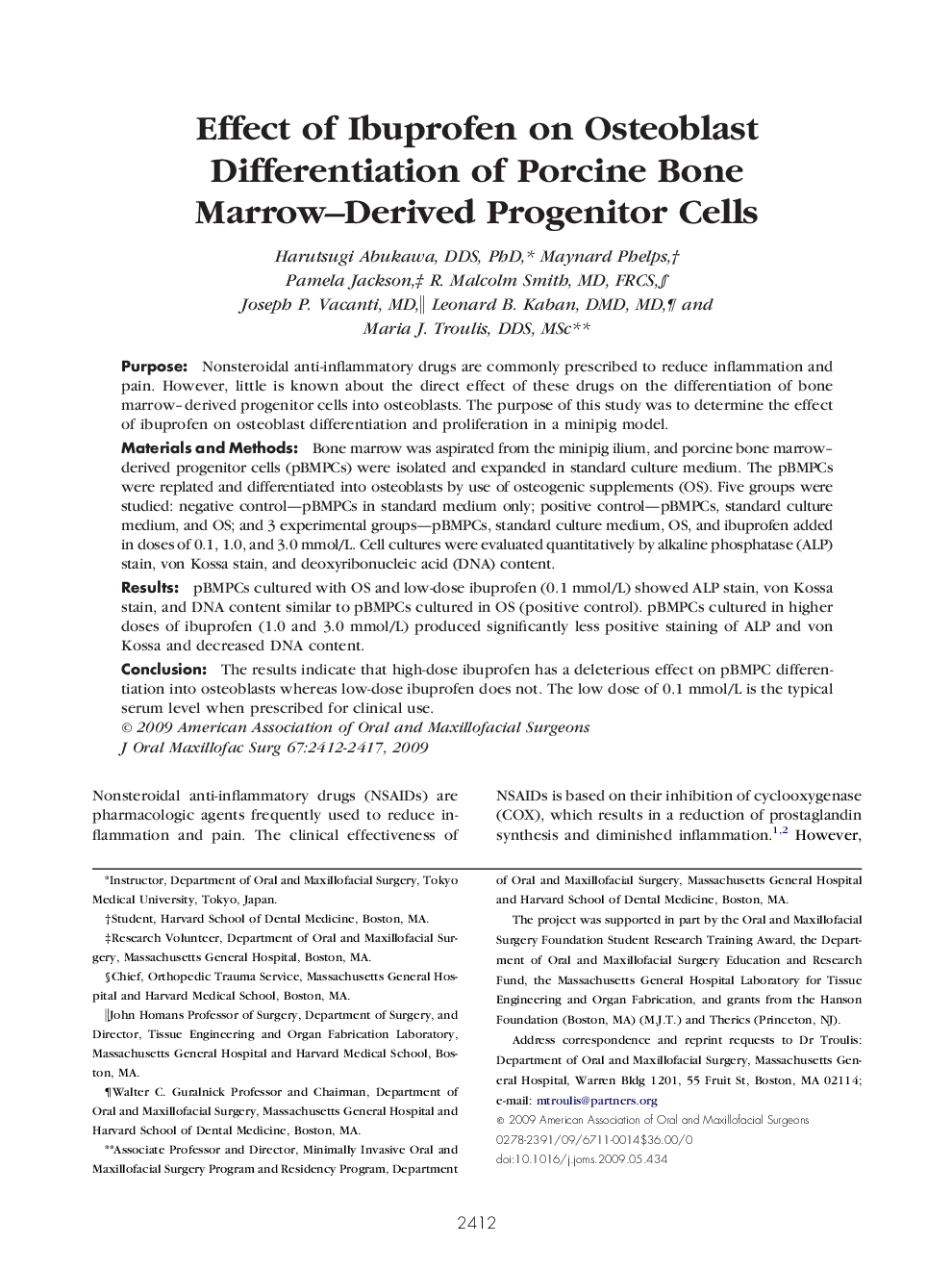| کد مقاله | کد نشریه | سال انتشار | مقاله انگلیسی | نسخه تمام متن |
|---|---|---|---|---|
| 3155105 | 1198069 | 2009 | 6 صفحه PDF | دانلود رایگان |

PurposeNonsteroidal anti-inflammatory drugs are commonly prescribed to reduce inflammation and pain. However, little is known about the direct effect of these drugs on the differentiation of bone marrow–derived progenitor cells into osteoblasts. The purpose of this study was to determine the effect of ibuprofen on osteoblast differentiation and proliferation in a minipig model.Materials and MethodsBone marrow was aspirated from the minipig ilium, and porcine bone marrow–derived progenitor cells (pBMPCs) were isolated and expanded in standard culture medium. The pBMPCs were replated and differentiated into osteoblasts by use of osteogenic supplements (OS). Five groups were studied: negative control—pBMPCs in standard medium only; positive control—pBMPCs, standard culture medium, and OS; and 3 experimental groups—pBMPCs, standard culture medium, OS, and ibuprofen added in doses of 0.1, 1.0, and 3.0 mmol/L. Cell cultures were evaluated quantitatively by alkaline phosphatase (ALP) stain, von Kossa stain, and deoxyribonucleic acid (DNA) content.ResultspBMPCs cultured with OS and low-dose ibuprofen (0.1 mmol/L) showed ALP stain, von Kossa stain, and DNA content similar to pBMPCs cultured in OS (positive control). pBMPCs cultured in higher doses of ibuprofen (1.0 and 3.0 mmol/L) produced significantly less positive staining of ALP and von Kossa and decreased DNA content.ConclusionThe results indicate that high-dose ibuprofen has a deleterious effect on pBMPC differentiation into osteoblasts whereas low-dose ibuprofen does not. The low dose of 0.1 mmol/L is the typical serum level when prescribed for clinical use.
Journal: Journal of Oral and Maxillofacial Surgery - Volume 67, Issue 11, November 2009, Pages 2412–2417